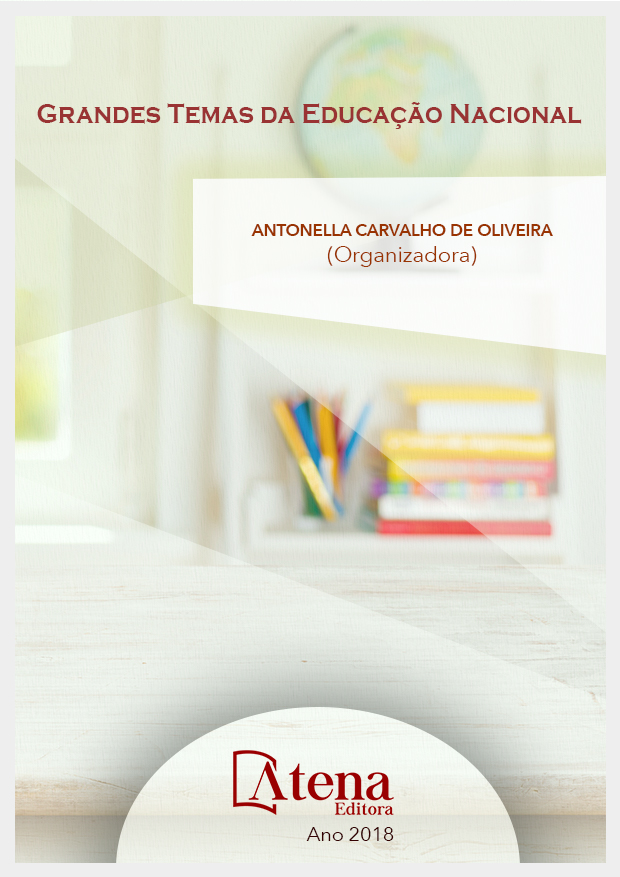
A APRENDIZAGEM DOS PÓS-GRADUANDOS POR MEIO DE SEMINÁRIOS DE PESQUISA
Este artigo discute a importância
do seminário de pesquisa como estratégia
metodológica utilizada nos cursos de pósgraduação para que ocorra uma aprendizagem
significativa. Delinear-se-á aspectos
relacionados a essa aprendizagem para
refletir e reconstruir a prática pedagógica dos
pós-graduandos em Educação. A pesquisa
é de cunho qualitativo fundamentada na
apresentação da metodologia do seminário
segundo Severino (2000) como uma
proposta de discussão, aprofundamento e
compreensão dos textos na construção de
conceitos estudados. Ampliou-se e discutiuse o conceito de aprendizagem significativa
e mapas conceituais, pois fundamentaram a
organização do seminário apresentado pelos
discentes e exposição das possibilidades
e desafios de uma experiência realizada a
partir de seminários desenvolvidos em uma
universidade em Curitiba/PR. Esse seminário
foi desenvolvido e organizado pelos alunos pósgraduandos e aplicado aos demais discentes
e envolveu como temática as concepções
teóricas da educação, destacando para este
artigo a organização de um dos seminários que
enfocará as contribuições da teoria de Freire
na formação de 16 pós-graduandos. Durante
os seminários, as discussões permitiram
perceber a necessidade de uma metodologia
que contemple a produção do conhecimento
com visão crítica e o crescimento dos pósgraduandos no seu processo de aprendizagem.
O embasamento teórico fundamenta-se em:
Freire (1979, 1997 e 2005), Severino (2000 e
2008) e Ausubel, Novak e Hanesian, (1980),
entre outros. O desenrolar dos seminários
desafiou os pós-graduandos a buscarem
diferentes estratégias e metodologias ativas
que contribuíssem com suas aprendizagens
e motivou o grupo de alunos a participar
ativamente dos estudos.
A APRENDIZAGEM DOS PÓS-GRADUANDOS POR MEIO DE SEMINÁRIOS DE PESQUISA
-
DOI: Atena
-
Palavras-chave: Aprendizagem. Seminários. Método de estudo. Paulo Freire.
-
Keywords: Learning. Seminars. Method of study. Paulo Freire.
-
Abstract:
This article discusses the importance of the research seminar as a methodological strategy used in postgraduate
courses for meaningful learning. We will delineate aspects related to this learning to
reflect and reconstruct the pedagogical practice of post-graduate students in Education.
The research is qualitative based on the presentation of the methodology of the seminar
according to Severino (2000) as a proposal to discuss, deepen and understand the texts
in the construction of studied concepts. The concept of meaningful learning and concept
maps was expanded and discussed, as they were the base to the organization of the
seminar presented by the students and the exposition of the possibilities and challenges
of an experience realized from seminars developed at a university in Curitiba/PR. This
seminar was developed and organized by the postgraduate students and applied to
the other students and involved as thematic the theoretical conceptions of education,
highlighting for this article the organization of one of the seminars that will focus on
the contributions of Freire’s theory in the formation of 16 post-graduating. During the
seminars, the discussions made it possible to perceive the need for a methodology
that contemplates the production of knowledge with a critical vision and the growth of
post-graduate students in their learning process. The theoretical background is based
on: Freire (1979, 1997 and 2005), Severino (2000 and 2008) and Ausubel, Novak and
Hanesian, (1980), among others. The development of the seminars challenged the
graduate students to seek different strategies and active methodologies that would
contribute to their learning and motivated the group of students to participate actively
in the studies
-
Número de páginas: 15
- Cláudia Sebastiana Rosa da Silva


